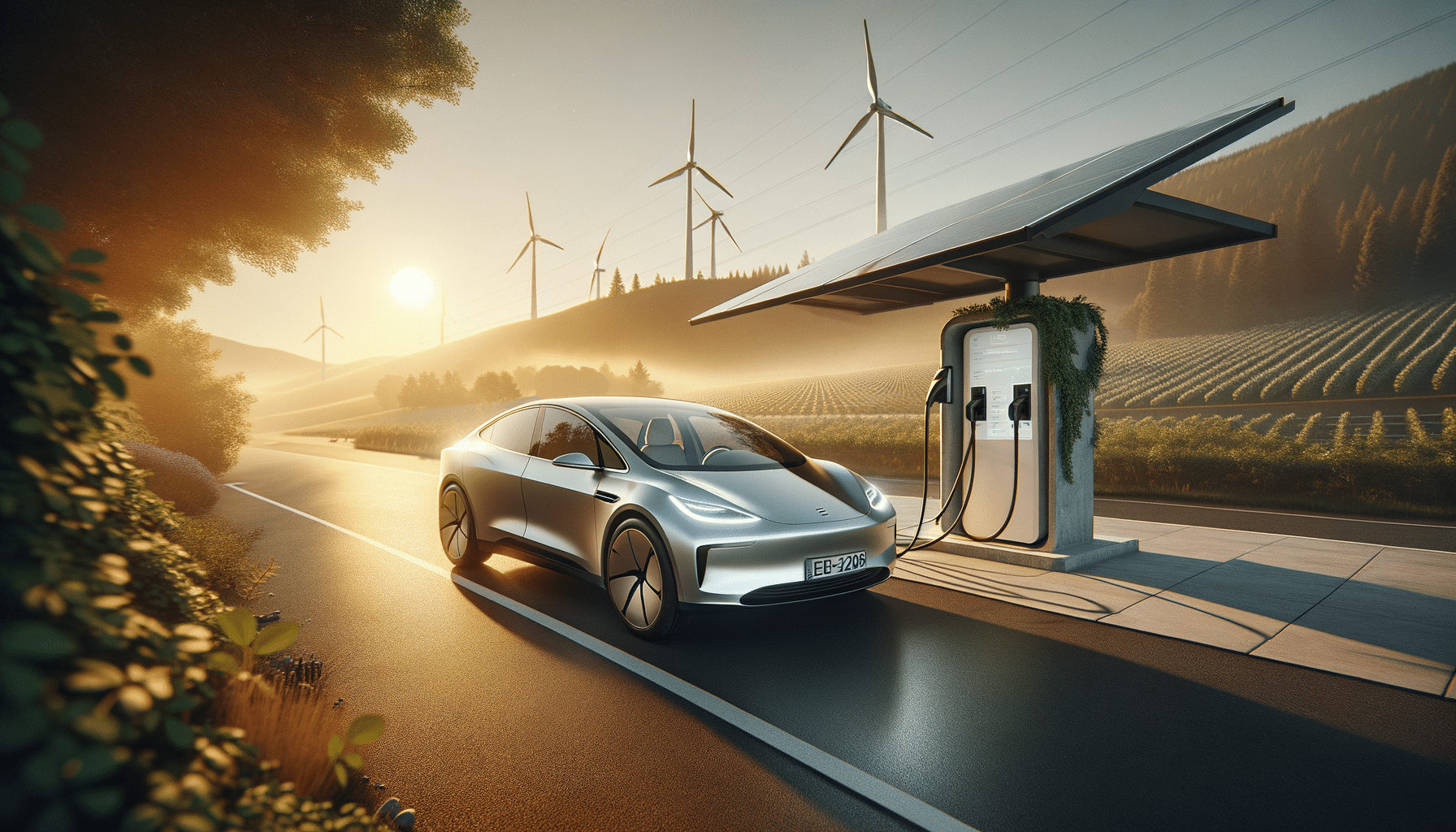
5 Reasons Why EVs Are the Future of Driving
The Rise of Electric Vehicles
Electric vehicles (EVs) are rapidly transforming the landscape of the automotive industry. With increasing environmental concerns and technological advancements, “one of the top options” for a sustainable future is the transition to electric vehicles. EVs offer numerous benefits, including reduced emissions, lower operating costs, and a quieter driving experience. As governments worldwide implement stricter emission regulations, the demand for EVs continues to grow, making them an integral part of the future of driving.
Several factors contribute to the rise of electric vehicles. Firstly, the environmental benefits are significant. EVs produce zero tailpipe emissions, reducing the carbon footprint and helping to combat climate change. Additionally, the use of renewable energy sources for charging further enhances their eco-friendliness. Secondly, advancements in battery technology have led to increased ranges and faster charging times, addressing one of the primary concerns of potential buyers.
Moreover, the cost of owning an electric vehicle is becoming more competitive. While the initial purchase price may be higher, the long-term savings on fuel and maintenance make EVs a financially viable option. The simplicity of electric motors, with fewer moving parts compared to internal combustion engines, results in lower maintenance costs. As technology continues to evolve, the affordability and accessibility of electric vehicles are expected to improve further.
Technological Innovations in EVs
Technological innovations play a crucial role in making electric vehicles “among the best” choices for modern drivers. The development of advanced battery technologies, such as solid-state batteries, promises to significantly enhance the performance and efficiency of EVs. These batteries offer higher energy density, longer lifespan, and improved safety, addressing some of the limitations of current lithium-ion batteries.
Another notable advancement is the integration of smart technologies in electric vehicles. Features like regenerative braking, which recovers energy during braking and feeds it back to the battery, contribute to increased energy efficiency. Additionally, intelligent energy management systems optimize power usage, ensuring maximum efficiency during every drive.
The rise of autonomous driving technology is also shaping the future of EVs. Many electric vehicles are equipped with advanced driver-assistance systems (ADAS) that enhance safety and convenience. Features such as adaptive cruise control, lane-keeping assist, and automated parking are becoming standard in modern EVs, providing a glimpse into the future of self-driving cars.
Furthermore, connectivity features in electric vehicles are transforming the driving experience. In-car infotainment systems, real-time navigation, and remote vehicle management through smartphone apps are just a few examples of how technology is enhancing the convenience and enjoyment of driving an EV. These innovations make electric vehicles not only environmentally friendly but also technologically advanced.
Infrastructure Development for EVs
The growth of electric vehicles is closely tied to the development of charging infrastructure. To support the widespread adoption of EVs, countries around the world are investing in the expansion of charging networks. Public charging stations are becoming more prevalent, making it easier for EV owners to charge their vehicles on the go.
Fast-charging technology is a game-changer for electric vehicles. With fast chargers, EVs can be charged to 80% capacity in as little as 30 minutes, addressing the issue of long charging times. This development is crucial for increasing the convenience and practicality of electric vehicles, especially for long-distance travel.
Moreover, the integration of renewable energy sources into the charging infrastructure is a significant step towards sustainable transportation. Solar-powered charging stations and the use of wind energy to generate electricity for EV charging are examples of how renewable energy is being harnessed to support the growth of electric vehicles.
Government incentives and policies also play a vital role in promoting the development of charging infrastructure. Subsidies for installing home chargers, tax benefits for EV buyers, and funding for charging station projects are some of the measures being implemented to encourage the adoption of electric vehicles. As charging infrastructure continues to expand, the convenience and accessibility of EVs will further improve.
The Environmental Impact of EVs
Electric vehicles are renowned for their positive environmental impact. By eliminating tailpipe emissions, EVs contribute significantly to reducing air pollution and improving urban air quality. This is particularly important in densely populated areas where air pollution is a major health concern.
The use of renewable energy for charging further enhances the environmental benefits of electric vehicles. As the energy grid transitions to cleaner sources, the carbon footprint of EVs continues to decrease. This shift is essential for achieving global climate goals and reducing greenhouse gas emissions.
In addition to reducing emissions, electric vehicles also contribute to noise pollution reduction. The quiet operation of electric motors creates a more peaceful urban environment, benefiting both residents and wildlife. This aspect of EVs is often overlooked but plays a significant role in improving the quality of life in cities.
Furthermore, the lifecycle impact of electric vehicles is becoming more sustainable. Manufacturers are focusing on eco-friendly production processes and the use of recyclable materials. As battery recycling technologies advance, the environmental impact of EVs is expected to decrease further, making them a truly sustainable option for the future of driving.
Challenges and Future Prospects
Despite the numerous advantages, the widespread adoption of electric vehicles faces certain challenges. One of the main concerns is the limited range of some EV models compared to traditional vehicles. However, continuous advancements in battery technology are gradually addressing this issue, making longer ranges more achievable.
The availability of charging infrastructure is another challenge that needs to be overcome. While significant progress has been made, the expansion of charging networks is essential to support the growing number of EVs on the road. Governments and private companies are working together to accelerate the deployment of charging stations, ensuring that EV owners have convenient access to charging facilities.
Cost is also a factor that affects the adoption of electric vehicles. Although the total cost of ownership is often lower, the initial purchase price can be a barrier for some consumers. However, as production scales up and technology advances, the cost of EVs is expected to decrease, making them more accessible to a broader audience.
Looking ahead, the future prospects for electric vehicles are promising. As technology continues to evolve, EVs are expected to become more efficient, affordable, and accessible. The automotive industry is undergoing a significant transformation, with electric vehicles at the forefront of this change. As consumers become more environmentally conscious and governments implement stricter emission regulations, the transition to electric vehicles is inevitable. The future of driving is electric, and the journey has just begun.


